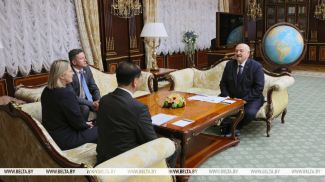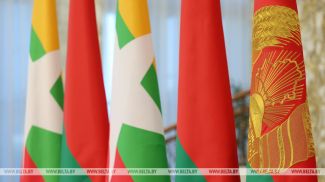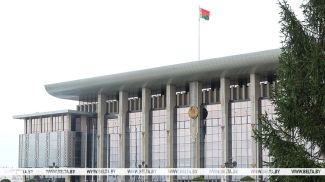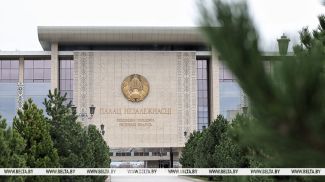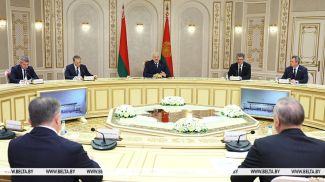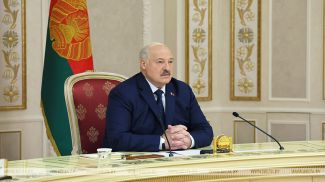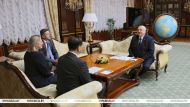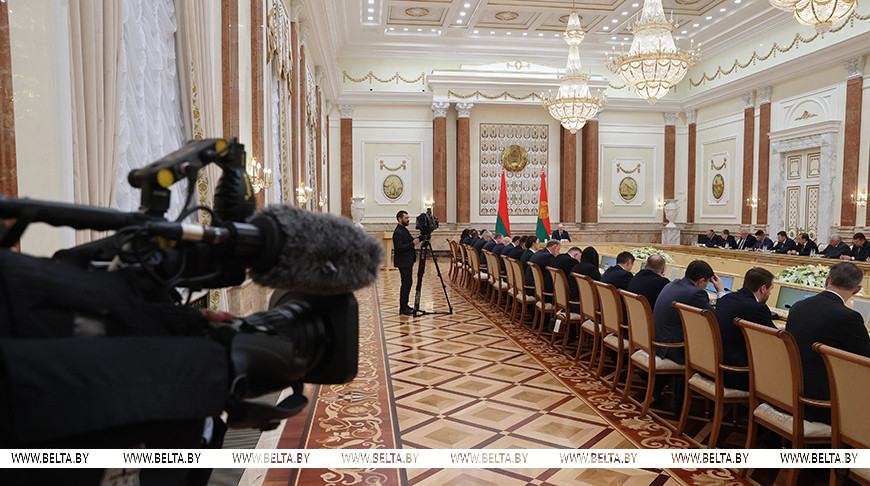
MINSK, 14 February (BelTA) – All issues identified in the country’s higher education should be addressed by September, Belarusian President Aleksandr Lukashenko said at a meeting with members of the National Council of Rectors of Higher Education Institutions on 13 February, BelTA has learned.
“My demand following today's meeting is the following: all major issues have been voiced, and now we need to look into them. All of them should be ranked and solved. Everything should be addressed by September,” the head of state said. “You must organize this process. Members of the government, top officials and rectors of universities are present here today. Organize this process together. All of you are responsible for the results. We need to hold another meeting before 1 September. You will show me new textbooks and make the corresponding reports. Start with the humanitarian [sector].”
As far as textbooks are concerned, the president stated that there were few disciplines where educational materials needed revision. For example, there is usually no such need in exact disciplines. Aleksandr Lukashenko suggested that the rectors of universities update the textbooks that need improvement: “Each rector will take a textbook and organize the work on its revision.”
The head of state said that the material should be presented in a comprehensible and accurate manner, and perhaps include something from Soviet textbooks.
During the meeting, the president took a keen interest in all the problems existing in the higher education system today. Among the issues discussed were financial and economic components of higher education institutions' activity, the cost of paid tuition and the profitability of higher education institutions. “Take a look at the economic part of higher education institutions' activity,” the head of state said.
Aleksandr Lukashenko demanded that the government and the Education Ministry solve the existing problems in a clear and timely manner and in line with modern requirements.
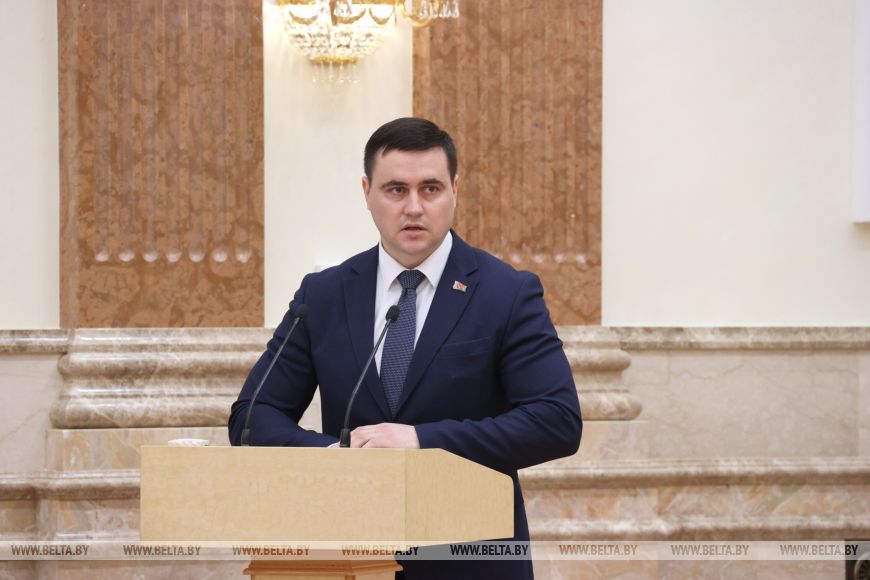
Education Minister Andrei Ivanets reported on the measures taken to improve the quality of higher education.
Chairman of the National Council of Rectors, BSUIR Rector Vadim Bogush reported on the role of the National Council of Rectors and the implementation of the state policy in higher education.
“Over the past two years we have done a lot to introduce new educational standards and continue updating qualifications, developing new specialties,” he said.
Textbooks are updated to become more practice-oriented and more consistent with the current technologies and infrastructure.
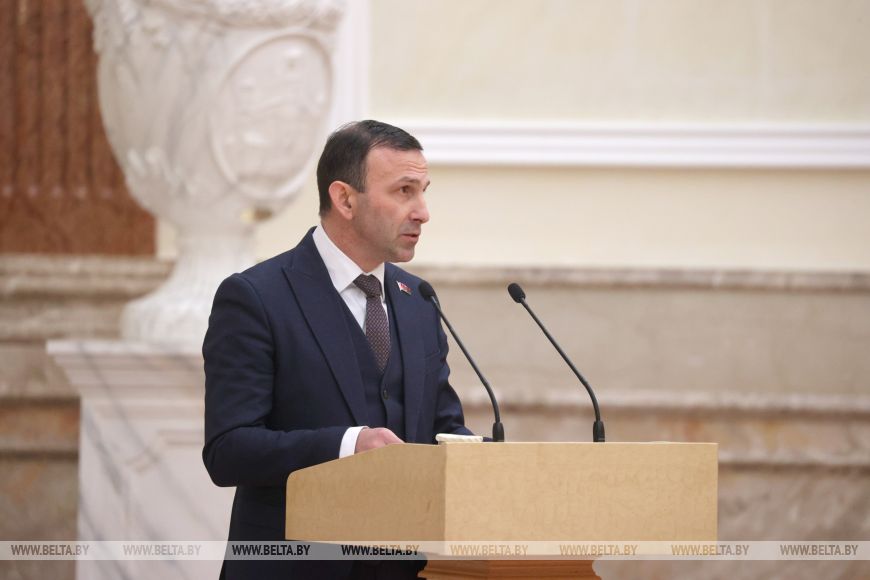
According to Vadim Bogush, a lot has been done to identify and select motivated applicants, but this work should start at the school level. It is just as important to strengthen links between education, science and manufacturing, and to engage students in professional activities. Chairman of the Higher Attestation Commission Aleksandr Guchok raised the problem of maintaining the adequate number of highly qualified scientists. He pointed to some alarming trends in this field. One of them is the aging of scientific personnel and the decrease in the number of PhD degrees awarded.
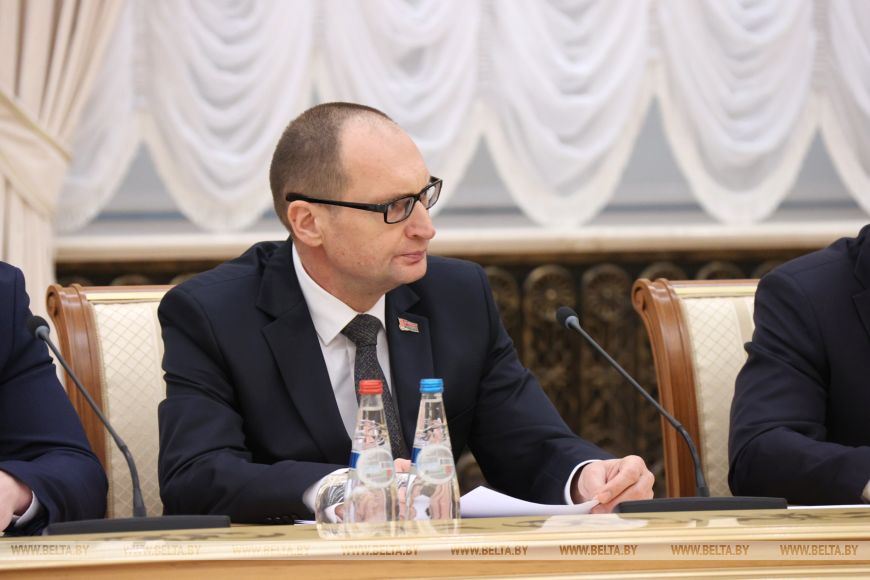
Notwithstanding this, Aleksandr Lukashenko warned against lowering requirements for obtaining a particular academic degree. “We should not award academic degrees just to have a certain number of candidates or doctors of science,” he said. “You must strictly comply with the regulations for obtaining academic degrees. We should not ease the requirements. We don’t need dissertations for the sake of dissertations. These requirements should be observed religiously. Some say that we will have fewer candidates of science in this case. Well, let there be fewer, but they will be true scientists. Just like doctors of sciences. A doctor of sciences is a luminary,” Aleksandr Lukashenko said.
Rector of Belarusian State Agricultural Academy Vitaly Velikanov spoke about the upgrade of the personnel training system taking into account the market needs. This involves employer-sponsored education, a practice-oriented approach, and creating attractive working conditions for young specialists.
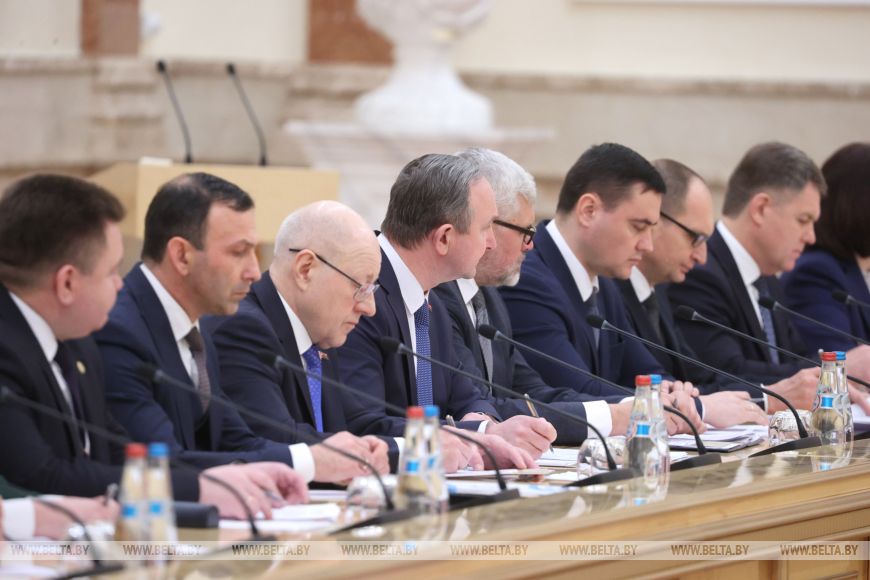
Aleksandr Lukashenko was particularly interested in higher education programs for those who already work in agriculture, but would like to expand knowledge and grow professionally. He warned against scaring people away with inflated requirements or an overloaded curriculum. Instead such students should be able to learn just exactly what they need. The head of state knows about this issue firsthand, since he once graduated from the Academy majoring in economics.
"That was my third degree after the ones in politics [and history]. It was my informed decision to major in economy because I knew I would need it in agriculture. I will learn everything else such as crop production, animal husbandry, and so on in practice. I'm a countryman after all," he said.
However, during the studies, there were the disciplines that were not much needed in agriculture. "We were taught complex statistics! Today, being the president, I recall this and think whether I needed it. That’s why I pay closest attention to your curricula. For example, I know one farm manager who has gained some work experience after college. She is an excellent specialist, but she will not go to study at your academy because she is afraid of your curriculum," the head of state gave an example. “There is no need to simplify. But the curricula should be tailored to specific needs."
In this case, and in general, the head of state urges a less bureaucratic approach. This applies not only to the process of studying at the university, but also to entrance exams, the selection of promising students, approaches to working with young people and retaining personnel.
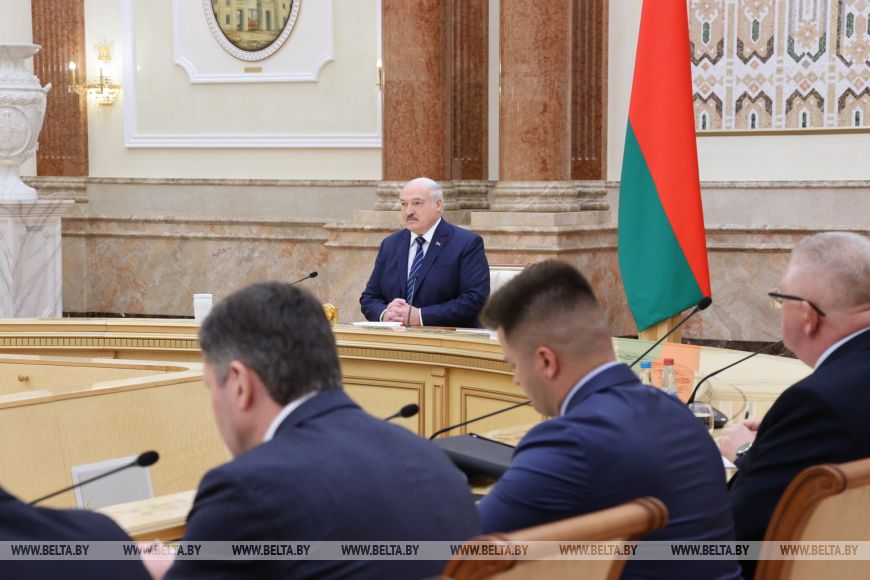
"We need to strive to become less bureaucratic. It is important for me that we keep Belarusian education attractive. I'm not forcing this issue because things are really bad in our country. Quite the contrary. 30,000 foreign students currently study here and pay good money. So, it's not all bad. But you have to give a shake up to make things better. Because tomorrow we might lose what that we have today," the president said.
For example, Aleksandr Lukashenko noted that admission campaigns and university personnel recruitment will be high on the agenda next year and everyone will have to report: "Otherwise, why do we need a rector? It's up to the rector to keep everyone on their toes. It's not good that we get together and tell each other about the problems and difficulties you have. Well, you solve them at your level. We need to stop these idle talks."
The president explained why he is so tough on this and other issues. "We are undergoing a generational change. Everyone sitting here will leave sooner or later. Who will come after us? Won't we be sorry for failing to do all we could? We all need to get moving, to shake things up! It depends on us what will happen tomorrow in Belarus," Aleksandr Lukashenko stressed. “Today we have to think about who will come after us. We need to build a normal system and leave it over to our children. We will not pass away immediately. We will look from the sidelines either happy or feel sorry for failing to do this and resolve that. We need to bring the higher education system back to its senses. Otherwise, we won't get anywhere."




